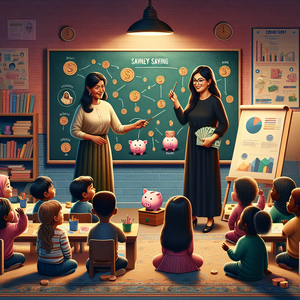The Evolution of Event Technology in LA Productions

One of the most significant advancements in event technology is the incorporation of virtual reality (VR) and augmented reality (AR). These immersive technologies allow attendees to engage with events in ways that were previously unimaginable. Companies like VRLA have been pioneers in creating VR experiences that transport participants into entirely new worlds, enhancing not just entertainment but also storytelling at events. For instance, at the recent LA Art Show, AR technology was employed to allow visitors to interact with digital art pieces using their smartphones. This not only increased engagement but also provided an additional layer of information about the artworks, bridging the gap between the physical and digital realms. By enabling attendees to visualize and interact with art in a dynamic manner, the event redefined traditional gallery experiences, showcasing how technology can enhance creativity and interactivity.
Live Streaming: Expanding Reach and Accessibility
The COVID-19 pandemic accelerated the adoption of live streaming in the event production landscape, and this trend shows no signs of slowing down. Event organizers have discovered that live streaming not only allows for greater accessibility but also expands the audience reach. Companies such as Eventbrite and Hopin have developed platforms that enable seamless integration of live streaming into events, making it easier for organizers to engage with virtual audiences. A notable example of this trend is the annual Los Angeles Film Festival, which successfully transitioned to a hybrid model, combining in-person screenings with live-streamed events. This approach allowed filmmakers and audiences to connect regardless of geographical barriers, fostering a sense of community and inclusiveness that traditional events often lack. By providing a platform for filmmakers to showcase their work to wider audiences, live streaming has transformed the festival landscape, demonstrating the adaptability of the industry in challenging times.
Interactive Installations and Experiences
As technology continues to evolve, event production companies in Los Angeles are increasingly incorporating interactive installations to enhance attendee engagement. These installations can range from touch-screen displays to immersive environments that encourage participation. The TechCrunch Disrupt conference is a prime example, showcasing an interactive exhibit where attendees could engage with product demos through gesture-based technology, creating a memorable experience that resonates with participants long after the event. The integration of interactive elements not only captivates attendees but also provides valuable data for organizers. By tracking interactions, event planners can gain insights into attendee preferences, allowing for more tailored experiences in the future. The rise of gamification in events is another aspect, wherein attendees can participate in challenges or competitions that enhance networking opportunities and deepen their engagement with the event's theme.
The Future of Event Technology in LA
Looking ahead, the future of event technology in Los Angeles appears bright. As technologies such as artificial intelligence (AI) and machine learning continue to advance, we can expect even more personalized and efficient event experiences. For example, AI-driven chatbots can assist attendees with real-time information, while data analytics can optimize event planning by predicting attendee behavior and preferences. Moreover, as sustainability becomes an increasingly important focus for consumers, technology will play a critical role in creating eco-friendly event solutions. From using drones for waste management to employing energy-efficient lighting, the possibilities are endless. Event planners are now tasked with integrating these sustainable practices into their production processes, ensuring that events not only entertain but also reflect a commitment to the environment.
The event production landscape in Los Angeles is undergoing a remarkable transformation driven by technological advancements. Virtual reality, live streaming, and interactive installations are just a few examples of how technology is enhancing engagement and accessibility in the industry. As we move forward, the integration of AI and sustainable practices will further redefine what is possible in event production. For event organizers in Los Angeles, embracing these innovations is not just an option—it is essential for creating memorable experiences that resonate with diverse audiences in an ever-evolving landscape. The future of event technology is here, and it promises to make the magic of live events even more captivating. As the landscape continues to evolve, it will be fascinating to witness how Los Angeles, with its rich tapestry of culture and creativity, continues to lead the charge in redefining the event experience through technology.
Virtual Reality Event Producer
VRLA, event production companies, tech startups
Core Responsibilities
Design and oversee the creation of immersive VR experiences for events, ensuring they align with the event's theme and goals.
Collaborate with artists, technology specialists, and clients to develop engaging content that enhances attendee experiences.
Manage budgets, timelines, and technical aspects of VR installations at live events.
Required Skills
Proficiency in VR software (e.g., Unity, Unreal Engine) and a strong understanding of 3D modeling.
Experience in project management and a background in event production or multimedia design.
Strong communication skills to liaise with diverse teams and stakeholders.
Live Streaming Coordinator
Eventbrite, Hopin, production companies
Core Responsibilities
Plan and execute live streaming strategies for events, ensuring high-quality video and audio output.
Coordinate with technical teams to set up streaming equipment and troubleshoot any issues in real-time.
Analyze viewer engagement and provide reports on audience metrics post-event to improve future streaming efforts.
Required Skills
Familiarity with live streaming platforms (e.g., OBS Studio, Zoom, Vimeo Live) and video production tools.
Strong organizational skills and the ability to work under pressure during live events.
Knowledge of digital marketing strategies to promote live-streamed content effectively.
Interactive Experience Designer
Tech production companies, experiential marketing firms, creative agencies
Core Responsibilities
Conceptualize and design interactive installations for events that engage attendees through technology and gamification.
Collaborate with developers and artists to create user-friendly interfaces and engaging participant experiences.
Assess and implement analytics tools to gather data on attendee interactions for future improvements.
Required Skills
Background in user experience (UX) design, game design, or interactive media.
Proficiency in design software (e.g., Adobe Creative Suite) and familiarity with programming languages (e.g., JavaScript).
Creative problem-solving skills and the ability to think outside the box to enhance audience engagement.
Event Technology Consultant
Event consulting firms, production agencies, independent consulting roles
Core Responsibilities
Advise clients on the latest technologies and trends in event production to enhance engagement and accessibility.
Conduct assessments of existing event technology setups and recommend improvements or new solutions.
Provide training and support for event staff on new technologies implemented for their events.
Required Skills
Strong understanding of current event technologies, including AR/VR, live streaming, and data analytics.
Experience in event management or production, with a focus on technology integration.
Excellent communication and presentation skills to convey technical concepts to non-technical stakeholders.
Sustainability Event Planner
Eco-friendly event companies, nonprofit organizations, corporations
Core Responsibilities
Develop strategies to integrate sustainable practices into event production, focusing on reducing waste and environmental impact.
Collaborate with vendors and partners to source eco-friendly materials and technologies for events.
Monitor and evaluate the effectiveness of sustainability initiatives, reporting on outcomes and areas for improvement.
Required Skills
Knowledge of sustainable practices in event production and environmental regulations.
Strong project management skills with the ability to balance multiple priorities and budgets.
Passion for environmental issues and the ability to inspire others to adopt sustainable practices.


